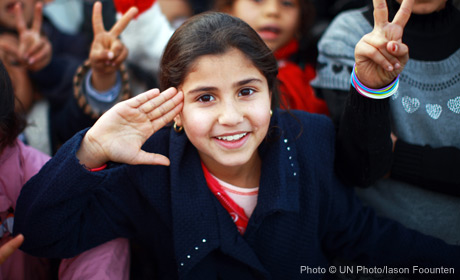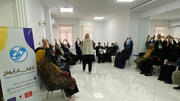Data Menu
-
Country Pages
-
Asia y el Pacífico
- Afganistán
- Bangladesh
- Bhután
- Camboya
- China
- India
- Indonesia
- República Islámica del Irán
- República Democrática Popular Lao
- Malasia
- Maldivas
- Mongolia
- Myanmar
- Nepal
- Pakistán
- Estado Independiente de Papua Nueva Guinea
- Filipinas
- Sri Lanka
- Tailandia
- Timor Oriental
- Vietnam
-
Europa Oriental y Asia Central
- Albania
- Armenia
- Azerbaiyán
- Belarús
- Bosnia y Herzegovina
- Georgia
- Kazajstán
- Oficina de Kosovo
- Kirguistán
- República de Moldova
- Macedonia del Norte
- Serbia
- Tayikistán
- República de Türkiye
- Turkmenistán
- Ucrania
- Uzbekistán
-
Estados Árabes
- Argelia
- Yibuti
- Egipto
- Iraq
- Jordania
- Líbano
- Libia
- Marruecos
- Omán
- Palestina
- la República Federal de Somalia
- Sudán
- República Árabe Siria
- Túnez
- Yemen
-
África Oriental y Meridional
- Angola
- Botswana
- Burundi
- Comoras
- República Democrática del Congo
- Eritrea
- Eswatini
- Etiopía
- Kenya
- Lesotho
- Madagascar
- Malawi
- Mauricio
- Mozambique
- Namibia
- Rwanda
- Seychelles
- Sudáfrica
- Sudán del Sur
- República Unida de Tanzanía
- Uganda
- Zambia
- Zimbabwe
-
América Latina y el Caribe
- Argentina
- Estado Plurinacional de Bolivia
- Brasil
- Chile
- Colombia
- Costa Rica
- Cuba
- República Dominicana
- la República del Ecuador
- El Salvador
- Guatemala
- Haití
- Honduras
- México
- Nicaragua
- Panamá
- Paraguay
- Perú
- Uruguay
- República Bolivariana de Venezuela
- Caribe (multinacional)
-
África Occidental y Central
- Benin
- Burkina Faso
- Cabo Verde
- Camerún
- República Centroafricana
- Chad
- Congo
- Costa de Marfil
- la República de Guinea Ecuatorial
- Gabón
- Gambia
- Ghana
- Guinea
- Guinea-Bisáu
- Liberia
- Malí
- Mauritania
- Níger
- Nigeria
- Sao Tomé y Príncipe
- Senegal
- Sierra Leona
- Togo
-
Country Menu

UNFPA Libya
UNFPA programmes in Libya aim to deliver a world where every pregnancy is wanted, every birth is safe, and every young person's potential is fulfilled.
Data overview
View more
Población
Población, por grupo de edad, porcentaje
- Población de 0 a 14 años, en porcentaje
- Población de 15 a 64, años, en porcentaje
- Population aged 65+
Salud sexual y reproductiva
Nacimientos atendidos por personal sanitario calificado, porcentaje, 2014-2019
- Nacimientos atendidos por personal sanitario calificado
Planificación familiar
Proportion of demand satisfied with modern methods, women aged 15-49, per cent, 2022
- Modern method
Educación
Total net enrolment rate, percent
No data
Gender, Rights, and Human Capital
Decision making on sexual and reproductive health and reproductive rights, percent, 2007-2022:
-
Adolescent birth rate per 1,000 girls aged 15-19, 2024:
11
Intimate partner violence, past 12 months, percent, 2018:
-
Decision making on women's own health care, percent, 2007-2022:
-
Decision making on contraceptive use, percent, 2007-2022:
-
Decision making on sexual intercourse, percent, 2007-2022:
-
Prácticas nocivas
Child marriage by age 18, percent, 2023:
-
Female genital mutilation prevalence among girls aged 15-19, percent, 2022:
-
Paneles disponibles para Libya
Noticias
"Un alma en ruinas": En Libia, la oportunidad de un futuro posterior a la violencia y el rechazo
Después de un divorcio precedido de un matrimonio violento, Muna* debió enfrentar un conjunto de desafíos diferentes. “...

Redes sociales
Tweets from UNFPATürkiye